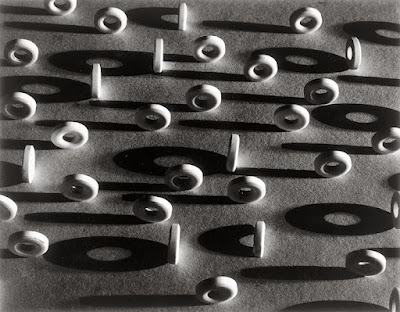-Institut-Valenci%C3%A0-d'Art-Modern.jpeg) |
| Paul Schuitema Centrale Bond 30,000 Transportarbeiders 1930 lithograph (poster for Dutch Transport Workers' Union) Institut Valencià d'Art Modern, Spain |
 |
| Paul Citroen Portrait of Lotti Weiss 1930 gelatin silver print Museum de Fundatie, Zwolle, Netherlands |
 |
| Grace Crowley Miss Gwen Ridley 1930 oil on canvas Art Gallery of South Australia, Adelaide |
 |
| Agda Holst Lady in Black 1930 oil on canvas Göteborgs Konstmuseum, Sweden |
-Miss-Audrey-Stevenson-as-Circe-1930-oil-on-canvas-National-Gallery-of-Victoria-Melbourne.jpg) |
| Mary Cecil Allen Sketch: Miss Audrey Stevenson as Circe 1930 oil on canvas National Gallery of Victoria, Melbourne |
 |
| Alfred Cheney Johnston Ziegfeld Girl 1930 gelatin silver print Los Angeles County Museum of Art |
 |
| Alfred Cheney Johnston Ziegfeld Girl 1930 gelatin silver print Los Angeles County Museum of Art |
 |
| Victor Brauner Suicide at Dawn 1930 oil on canvas Los Angeles County Museum of Art |
 |
| Henry Moore Seated Figure 1930 alabaster Art Gallery of Ontario, Toronto |
 |
| Gabrielle Chanel Dress with Scarf 1930 silk crepe Los Angeles County Museum of Art |
 |
| José Clemente Orozco Pueblo Mexicano 1930 lithograph NSU Art Museum, Fort Lauderdale, Florida |
 |
| László Moholy-Nagy Gare Montparnasse seen from Mondrian's Studio 1930 gelatin silver print Kunstmuseum, The Hague |
 |
| Jan Matulka Abstract Still Life with Mask 1930 oil on canvas Phoenix Art Museum, Arizona |
 |
| Gertrud Arndt Wall-Painting Workshop, Bauhaus, Dessau 1930 gelatin silver print National Gallery of Australia, Canberra |
-1930-gelatin-silver-print-Kunstmuseum-The-Hague.jpg) |
| Gerard Kiljan Untitled (Pills) 1930 gelatin silver print Kunstmuseum, The Hague |
 |
| Ruth Bernhard Lifesavers 1930 gelatin silver print San Jose Museum of Art, California |
Alone
Each lover has a theory of his own
About the difference between the ache
Of being with his love, and being alone:
Why what, when dreaming, is dear flesh and bone
That really stirs the senses, when awake,
Appears a simulacrum of his own.
Narcissus disbelieves in the unknown;
He cannot join his image in the lake
So long as he assume he is alone.
The child, the waterfall, the fire, the stone,
Are always up to mischief, though, and take
The universe for granted as their own.
He cannot join his image in the lake
So long as he assume he is alone.
The child, the waterfall, the fire, the stone,
Are always up to mischief, though, and take
The universe for granted as their own.
The elderly, like Proust, are always prone
To think of love as a subjective fake;
To think of love as a subjective fake;
The more they love, the more they feel alone.
Whatever view we hold, it must be shown
Why every lover has a wish to make
Some other kind of otherness his own:
Perhaps, in fact, we never are alone.
Why every lover has a wish to make
Some other kind of otherness his own:
Perhaps, in fact, we never are alone.
– W.H. Auden (1941)